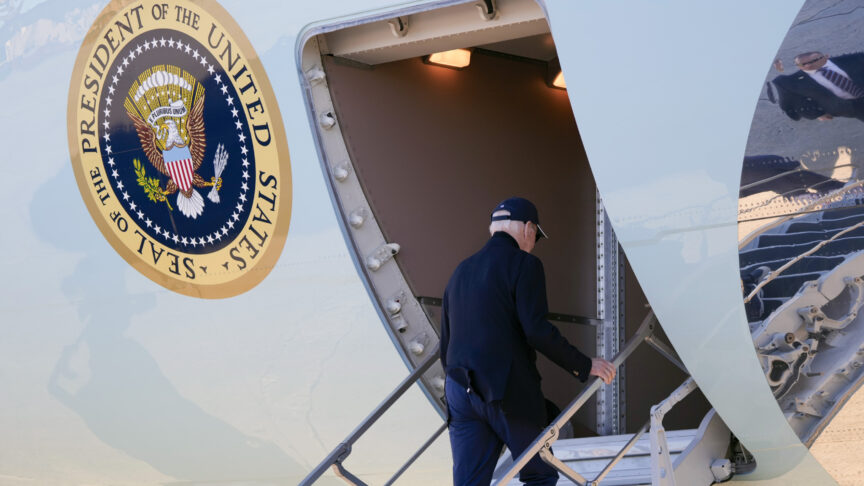Why post-modern Spain needs a new foreign policy
Spanish leaders need to face up to the strategic challenges of our time to prevent a Hobbesian world of the future
After the elections: deepening Spanish introspection?
In times of affluence and stability, rulers enjoy the rare luxury of being able to tackle problems today, while they are still manageable, and before they get out of hand tomorrow. In this way, leaders can influence the present and shape the future, ruling for the current generation and, in part, also for the next. But to do this they have the difficult duty of preparing society for new challenges. Of late, our leaders in Spain and probably in Europe too, have done little in this regard. Those who take over at this time will not enjoy the standard 100-day truce, neither in the domestic realm nor on the international scene. They will inherit a Spanish state and a democracy in crisis, as well as a world beset by a chain-reaction of crises. Yet the leader’s duty, often uncomfortable, but a question of ethics, is more pressing than ever.
In this sense, one of the risks for Spain after the December 20 elections is that rulers, politicians and citizens wallow in the country’s customary social and political introspection. With rare exceptions, stubborn Iberian navel-gazing has been the norm in modern Spain, and it would appear to still hold sway in the postmodern era. Ironically, this means that Spain today encapsulates the European mindset, because after all, much of Europe is currently afflicted by this introspection. Erstwhile navigators, discoverers, humanists and scientists, we Europeans no longer look through a periscope at the world around us. Racked by insecurity, instead we peer anxiously at any discernible changes to our lifestyles.
Seen from Ukraine, where I write these lines, or indeed from almost any other country in our neighbourhood, this Hispanic introspection is worrying. While Europe’s divisions and global irrelevance deepen and the world slides into an Age of Insecurity, Spain’s body politic is petrified – absorbed by the latest twist of the Catalan imbroglio or the latest pun of a Socialist “barón” (regional leader) against the party’s leadership. In the present circumstances of political crisis and a hung Parliament, some introspection is inevitable. The question is whether it is symptomatic of a society that is unable to face the Hobessian world of the future in a dynamic and competitive manner, and that still believes it can contain this upcoming world indefinitely from behind our borders. Such a myopic prism is based on the illusion that we can hold on to our present standards without making any sacrifices and reforms, and on a false dichotomy between domestic and international spheres, shattered by the 2008 financial crisis, the stream of refugees, and the terrorists in Paris.
In my view, a second risk linked to this introspection is the mere continuity of certain sacred dogmas and tendencies which have conditioned the approach of our elites to international relations, dictating Spanish foreign policy. Such dogmas translate into diagnostic errors regarding the international scene, continual brakes on any ambitious action going beyond the common denominator, and that whimsical toing and froing (entering Iraq in 2003 and exiting Iraq in 2004 is but one example) which has ruined Spain’s credibility in recent years. Our domestic vision of foreign policy is often bound up in clichés and dogmas – many of them, Manichean – about Europe, NATO, Russia and alliances. It is also fettered by dusty concepts of international law as if it were still 1945 (or earlier), and not the twenty-first century. Added to this is the apparently irresistible demagogic temptation by some decision-makers of scoring puerile goals at home when tackling complex dossiers such as Kosovo (Catalonia) and Syria (The Azores).
The realms of foreign policy, and especially diplomacy, tend naturally towards maintaining the status quo
The realms of foreign policy, and especially diplomacy, tend naturally towards maintaining the status quo, the protection of interests and avoiding inconvenient risks for the government of the day. But the collective regeneration which the so-called “New Politics” in Spain propounds and which, more importantly, the times are crying out for, should include foreign policy, while avoiding populism and cheap shots. A first step would be to open our political thinking to other visions discussed in Europe and the world today, reassessing some of these dogmas, clichéd views and simplistic temptations.
The mantra of a single European foreign policy: Europe as a jazz band
Take for instance the idea of “a stronger Europe in the world”, with one foreign policy, a common line wheeled out by all Spanish governments and main parties. At present, the fulfilment of this idea in a Europe comprising almost 30 states with sharp divisions is doubtful. So it is its future fulfilment, despite the dubious historical determinism which dominates certain spheres in Brussels. It is unquestionable that Europe, sticking to its interminable navel-gazing and byzantine battles, always seeking the magical recipe that will produce a real common foreign and security policy, above all when there is no real political will for grand political schemes, is counterproductive. Let us be honest: if the world is marching with giant strides, small steps are not enough anymore.
But the giant stride required by the cowering Europe of today – such as the common defence policy that Podemos now says it supports – would imply a series of sacrifices which states are not prepared to accept. Would Spain recognise Kosovo to comply with a qualified majority decision by the European Council? Would it and other states give up on individual representation in key international forums to allow for a shared institutional presence, whose diplomatic expertise and judgment sometimes leave a lot to be desired? Would we accept a heavier a defence budget and take immediate decisions for the urgent defence of the Baltics and Finland?
These questions, no doubt, require serious consideration. Yet in the meantime, let’s work more strategically within the imperfect reality – part integrated, part national – of variable alliances that is Europe today (more of jazz band in a permanent jam session than an orchestra). Let us fight against European fragmentation and democratic involution. And let us give practical content to the concept of solidarity when faced with situations such as the Paris attacks and presence of a million-plus refugees, of whom only some 272 were redistributed in 2015.
The Spanish Iraq syndrome and complacency with authoritarianism
All of which brings me to another set of instincts which often condition our international agenda, such as isolationism and an indulgent attitude towards authoritarianism. With regard to the former, the mantra of 2003 Iraq, wielded by some political forces as a default answer to any international conflict in which a military dimension, is placed on the table (from Afghanistan to Syria), as we witnessed in the aftermath of the attacks in Paris, is neither sustainable nor acceptable. This is especially the case when all the necessary guarantees of legality and legitimacy are satisfied, from the UN and EU to our own parliament. Further, this Iraq mantra conveniently avoids a responsible reflection on how to maintain national and collective security in a world of failed states, hostile government actors and Daesh, and is a hurdle for Spain as a relevant European state. Especially when raised to the level of ideology, this Iraq syndrome is based on a dubious, albeit comforting, moral superiority which many Afghans, Bosnians and Yazidis would argue with – if they were allowed to.
The other instinct I mentioned is one of the motors of that cheap and mercantilist realpolitik which leads all too many Spanish rulers and politicians to embrace despots from Eurasia to the Middle East or North Africa, pledging eternal friendship ties. This approach does not tend to deliver the economic or security dividends it claims, and is not sustainable in the midst of worldwide demands for greater civic and popular empowerment. The brutal nature of international relations may well preclude a foreign policy based exclusively on the support for dissidents and democratising forces. Other kinds of logic will continue to weigh on diplomacy, and there will continue to be difficult dilemmas in imperfect scenarios such as those of Tunisia, Moldova and Ukraine. But, as a modern democracy, we must question this piggyback-riding of the status quo and the shaky tenets it is based on. At the very least, we cannot expect other peoples to resign themselves to living under regimes we would not wish to live under ourselves – bar, of course, that clique of ideologues and dogmatist scholars and politicians who insist on condemning other societies to suffer their own utopias.
We cannot expect other peoples to resign themselves to living under regimes we would not wish to live under ourselves
Therefore, today’s Spanish leaders should begin to face up to these strategic challenges, thinking long term, beyond all consuming daily agendas, the perfunctory tweet and saying whatever it is that their support bases wish to hear, like modern-day pied pipers of Hamlyn (do you remember how the fable ends?). In my view, Spain has two basic options: a conservative-reactive external agenda (which often unites forces from left and right), or a renewed and revitalising approach; more internationalist, appropriate for a state and political community which wants to be an active player once more in the new era.
But beyond specific public figures, in a mature and politically conscious society, much of the responsibility must be borne by its citizens. Will we be up to the task? Or, rather like the context described by Stefan Zweig in The World of Yesterday, are we sleepwalking towards the end of a golden era of security and the start of another dominated by uncertainty and chaos?
*English version of an op ed published in El Mundo daily, on 15 January 2016. Translation by James Badcock.
The European Council on Foreign Relations does not take collective positions. ECFR publications only represent the views of their individual authors.


